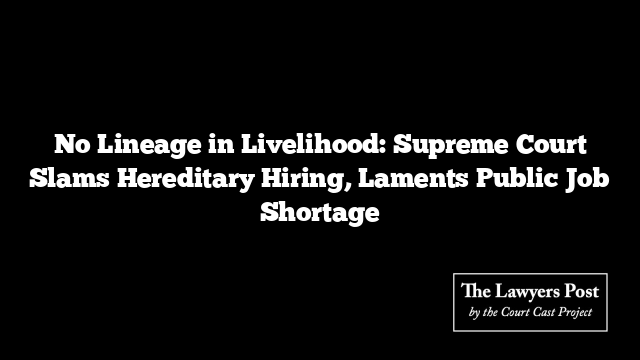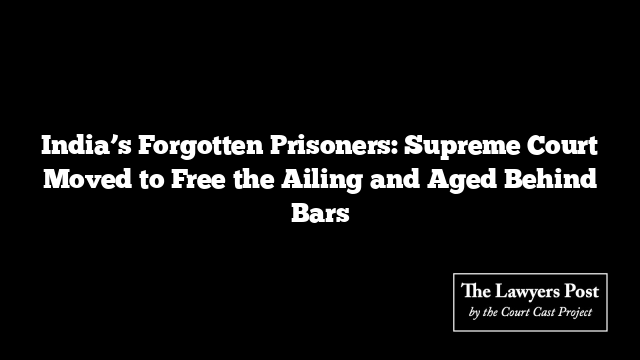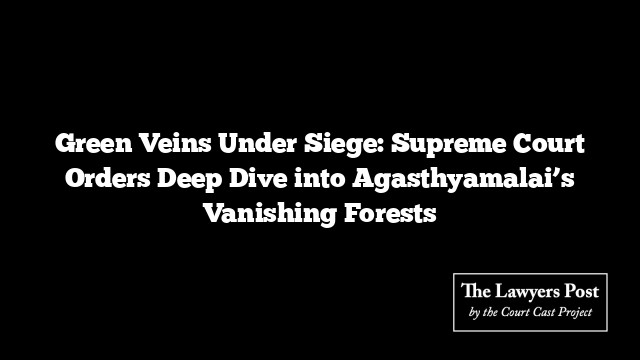As India edges toward eight decades of independence, the Supreme Court has delivered a sobering verdict—not just in law, but in legacy. Despite the dreams of equality and opportunity etched into the Constitution, the Court acknowledged a grim reality: public jobs remain painfully scarce, even for the countless qualified citizens vying for a foothold in government service.
“There is no shortage of capable candidates,” the Court remarked, “but the promise of public employment remains out of reach for many. We are nearing 80 years of self-rule, yet still chasing the basic ideal of equitable opportunity in public sector hiring.”
This observation came while the Court was examining—and ultimately upholding—the Patna High Court’s decision to invalidate a controversial state rule in Bihar that allowed chowkidars (village watchmen) to pass their government positions on to family members. The rule, nestled in a proviso of the 2014 amendment to the Bihar Chaukidari Cadre Rules, had allowed retiring chowkidars to nominate dependent kin as their successors.
The High Court had struck down the rule on the grounds of it being fundamentally unconstitutional, violating Articles 14 and 16, which guarantee equality and fairness in public employment. Curiously, no one had explicitly challenged the rule before the High Court—yet the Bench still struck it down.
That decision didn’t sit well with the Bihar Rajya Dafadar Chaukidar Panchayat (Magadh Division), which argued in the Supreme Court that the High Court had overstepped its bounds by acting suo motu—without a direct challenge to the rule.
The Supreme Court was not persuaded.
Justice Dipankar Datta, writing for the Bench that also included Justice Manmohan, stated that the High Court had every right—indeed, a responsibility—to act when faced with a regulation that so blatantly contradicted constitutional principles. If someone seeks relief based on an unconstitutional provision, the Court explained, it’s unrealistic to expect them to argue against the very basis of their claim.
In Justice Datta’s words: “Would the aggrieved party challenge the very rope they’re clinging to? That’s neither practical nor just. The High Court was correct in declaring the offending proviso void, even in the absence of a formal challenge.”
But the ruling didn’t stop at this narrow legal question. The Court used the moment to reaffirm a broader doctrine: writ courts don’t only exist to serve petitioners who knock at their door—they are guardians of constitutional integrity for all.
“When a court’s conscience is jolted by the brazen unconstitutionality of subordinate legislation,” the judgment declared, “it has not only the power, but the duty, to act. Even if no one has raised the red flag, the Court must blow the whistle.”
The ruling pointed to recent precedents—Manjit vs. Union of India and Southern Railways v. A. Nishanth George—where schemes allowing employment to wards of retiring government servants were struck down as “backdoor entries,” again for violating equality guarantees.
In short, the Court made clear: governance is not inheritance. Public jobs are not heirlooms to be handed down. They belong to the people, and access must be fair, not familial.
With that, the appeal was dismissed, and the High Court’s judgment left intact—a ruling not just in law, but in spirit, defending the democratic promise that every citizen, regardless of their surname, stands equal at the gates of opportunity.





